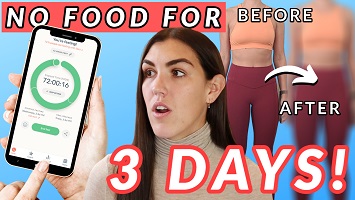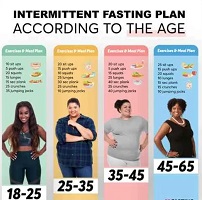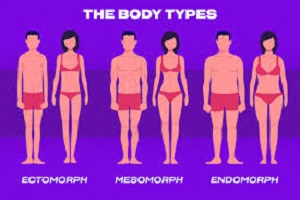3-Day Fast Benefits ~ 30-Day Water Fast
3-Day Fast Benefits ~ 30-Day Water Fast
Table of Contents
What is Fasting?
Fasting is defined as going without food and/or water for a lengthy period. This can be for a single meal or over an extended period.
For much of recorded history, fasts have been a feature of societies, medicine, and religion. They have long been a part of the human condition.
Types of Fasting?
- Juice Fasting – Juice Fasting is eliminating foods and substituting them with fresh juices, with many of these relying largely on less sugar-rich vegetables.
- Dry Fasting – Fasting without food or water is known as dry fasting. Dry fasts are normally for extremely short periods, such as 24 hours, because the body does not function well without water for an extended period. However, these types of fasts are quite effective. One-day water fast can provide the same health benefits as three-day water.
- Intermittent fasting entails intermittent eating, as the name implies. There are numerous variations, ranging from fasting every other day to skipping one meal per day and all in between.
- Partial fasting entails abstaining from some foods for some time. This can include meat, processed foods, or simple carbohydrates.
- Calorie Restriction – Not a full fast, but limiting overall caloric intake for a specific period.

What Is a Three-Day Fast?
As you already know, there are various types of fasting. Some restrict certain foods, while others compel you to abstain from eating for a set length of time.
So, what exactly is a three-day water fast? The name says it all. This is the practice of not eating or drinking anything for three days.
Water fast normally lasts 24 hours to 72 hours, although, in extreme situations, it can last up to 30 to 40 days.
While a three-day water fast is typically safe, prolonged fasts require constant medical supervision.
Reasons For Fasting?
- Longevity
- Pain Management
- Evolution
- Keto
- Brain Health
- Muscles
- Liver Rejuvenation
- Mood
- Gut Health
- Self-Control
- Weight Loss
- Blood Sugar
- Heart Health
- Sleep
Who should not do a 3-day fast?
Consult your doctor before beginning a 3-day fast to verify your eligibility depending on your health and medical history. A three-day fast is absolutely safe for most folks. Children under the age of 18 should never fast.
A 3-day fast is not recommended if you are pregnant, breastfeeding, have diabetes or gout, are underweight, have an eating disorder, or are taking certain drugs.
How to Do a 3-Day Fast
Set yourself up for success with proper planning and preparation.
- Eat a low-carb/low-sugar diet in the days leading up to your fast to assist your body transition to ketosis more quickly and comfortably.
- Eat smaller meals for several days before to your fast to help your body adjust to eating less food.
- Cut back gradually on stimulants like sugar, coffee, alcohol, or cigarettes in the weeks leading up to your fast to reduce your dependency.
- Do not overeat before beginning your fast. The more you consume, the longer it will take your body to enter ketosis. Stick to a small, balanced dinner in the early evening and then immediately begin fasting.
- Always consult your doctor first, especially if you have a medical condition or are taking medication.
The Fasting Period
- A true 3-day fast consists of consuming only water for 72 hours, with no other liquids or food.
- If you work during the week, begin fasting on Friday and end it on Sunday. So, on Thursday evening, have your last meal, and on Sunday evening, break your fast.
This will allow you to rest and relax throughout the weekend when you may not be feeling well.
It will also help you avoid the temptation of being around other individuals who are eating food.
- Schedule your fast such that you have a 72-hour period between your last and first taste of food.
- Make time in your schedule to rest and prevent stress.
- You may experience bouts of weariness and weakness, followed by spurts of vigor.
Breaking the Fast
- Always eat a light meal or snack to break your fast. For example, you may have bone broth with a small salad or avocado.
- Your first meal should have a low glycemic index.
- Avoid carbs and sweets, which might cause you to regain any lost weight and knock you out of ketosis.
- For at least three days after your fast, avoid caffeine, alcohol, and heavy meals.
- It is vital to understand that when you fast, your stomach produces less hydrochloric acid (HCI) because there is no food to break down.
Therefore, when you resume eating, give your stomach some time to adjust. If you consume too many calories, fats, and acidic foods, you may overproduce HCI and experience unpleasant acid reflux.
What to Expect from a Three-Day Fast
Everyone’s water fasting experience is unique. Some people, for example, suffer from insomnia, whereas others sleep soundly.
In general, you can expect day one of your fast to be the simplest in terms of food cravings. However, you may endure headaches and poor energy levels on the first day, particularly if you are also experiencing caffeine withdrawal.
The hunger pangs will be more intense by day two. On the second day, you may also notice some brain fog and more obvious ups and downs in your energy levels.
By day three, you should notice that your body is less puffy, bloated, and irritated. The hunger may be gone, or it may be worse. Some people have a rough third day, with an insatiable appetite and significant mood changes.
Benefits Of Fasting For 3 Days:
You’ve probably heard the old adage, “If you want to lose weight, you must stop eating.” It may sound silly and even hazardous, but it’s not entirely incorrect.
Fasting is a very effective strategy for losing weight because it involves eating fewer calories than you burn.
What Are the Benefits of A 3-Day Water Fast? Here Are the Benefits of Fasting For 3 Days:
- Autophagy
- Immune System Reset
- Weight Loss
- Might Improve Leptin and Insulin Sensitivity
- Lowers the Risk of Chronic Diseases
- Increases Good Cholesterol and Lowers the bad
- Might Lower Blood Pressure
- Lower Risk of Cancer
What is A 3-Day Water Fast?
You may be familiar with some types of fasting, such as intermittent fasting.
Some fasting regimens restrict certain food groups, while others require you to fast for specific lengths of time.
The phrase “3-day water fast” speaks for itself. For three days, you don’t eat or drink anything but water.
Water fasts can last from 24 hours to 72 hours; however, some people practice water fasting for 30-40 days.
While three-day water fast is relatively safe, longer fasts must be undertaken with extreme caution.
Difference Between Intermittent Fasting And 3 Day Water Fast
Intermittent fasting is a style of fasting that has recently gained popularity. It has numerous health benefits and is an effective weight-loss tool.
You will alternate between fasting times and eating windows during intermittent fasting. The 16/8 diet plan, the 18/6 IF plan, and the 5/2 diet are three of the best intermittent fasting diets.
In comparison, a 3-day fast is when you don’t eat or drink anything except water for three days and don’t just rotate between fasting and eating windows.
3 Day Water Fasting Tips
You can eat during the feeding windows with intermittent fasting, but fasting for three days does not enable you to eat or drink anything other than water.
Water fasting might thus be particularly difficult for someone who has never done it before. Here are some pointers to help you through this procedure.
- Begin Small
- Don’t Work Out
- If you are sick, do not attempt a three-day fast.
- Consume High-Energy Foods Before Beginning
- Time it right
Conclusion
In the end, a 3-day water fast is a difficult, demanding, and arduous regimen that will push you to your limits.
Due to an energy deficiency and hunger sensations, you may want to exit in the midst. However, if you can persevere, there are some incredible benefits of fasting for three days.
It is also important to check with a doctor who can give you the all-clear.
A three-day water fast might be an effective way to reset the body and promote different health advantages.
As with any major change in your diet or lifestyle, go with caution and make sure you’re properly prepared for a 3-day water fast.
FAQs
What Is A Three-Day Water Fast?
A 3-day water fast, also known as a 72-hour fast, is an extreme form of water fasting in which you consume only water for 72 hours or three full days.
Is 3-day water fast safe?
Although research suggests that prolonged fasting can be safe, water fasting for three days is typically not suggested or safe for some people, and there are usually healthier, less severe alternatives for weight loss and perceived health advantages.
These may include a shorter fast, an intermittent fasting diet, a well-balanced diet and exercise program, and so on.
Fasting For 3 Days: Will It Get Your Metabolism Cranking at Full Speed?
Fasting for a short period of time increases metabolism by up to 14%.
Some previous research, however, has indicated that fasting for brief periods of time can actually improve your metabolism rather than slow it down.
Older research of 11 healthy men discovered that a 3-day fast improved their metabolism by 14%.
Is Fasting For 3 Days Worth It?
No, it doesn’t. Water fasting for three days is not the way to go if you are looking for potential health benefits or to accelerate your weight loss.
This is a dangerous and even fatal method to try to live a healthier life.
Try a healthy, well-balanced diet with a caloric deficit of 500 to 1000 calories each day instead of fasting for 3 days.
Before embarking on a calorie-deficit diet, you should also contact your doctor or a dietician.
A caloric deficit diet combined with 30 minutes of exercise each day is a superior strategy to lose weight.
If you are still determined to do this fast, please do it under direct medical supervision.
What Are the Side Effects of Fasting For 3 Days?
Despite the benefits of fasting for three days described above, anyone considering trying it should be aware of the following concerns and risks:
- Malnutrition
- It will not lead to fat loss
- This may lead to dehydration
- This may lead to dizziness on standing up
- Hyponatremia
- Binge-eating disorder
What happens if you fast for 3 days?
What Should You Expect After a Three-Day Fast?
Fasting can cause vitamin and mineral deficits as well as muscular breakdown and diarrhea.
Fasting can also cause dizziness, headaches, low blood sugar, muscle aches, weakness, and exhaustion.
What are the benefits of a 72-hour fast?
Even at this limited frequency, water fasting 72 hours twice a month could result in approximately 4 pounds of fat reduction per month without any further adjustments to your diet or exercise program, and studies have shown that fasting can improve body composition.
How often should you do a 3-day fast?
People trying to detox and drop moderate weight prefer shorter fasts of up to 1-3 days.
Fasts of less than 48 hours can be done weekly, whereas longer fasts can be done every two weeks with intermittent fasting in between, according to our research.
What happens if you fast for four days?
Fasting causes significant metabolic alterations, with the shift from carbs and glucose to fatty acids and ketones as the primary cellular fuel source for the body and brain appearing to play an important role.
Is fasting for 3 days healthy?
Although research suggests that prolonged fasting can be safe, water fasting for three days is typically not suggested or safe for some people, and there are usually healthier, less severe alternatives for weight loss and perceived health advantages.
What happens to your body after three days of not eating?
After three days, the liver has depleted its fuel reserves for the body and brain to process and use.
This is the start of the autophagic process. This is the process through which the body breaks down proteins in order to provide fuel for all of its systems.
Will you lose fat if you don’t eat for three days?
Your body begins to break down adipose tissue after two or three days without eating.
The fatty acids produced during this process serve as the primary fuel source for your muscles.
Fatty acids are also used in the liver to produce ketones. Ketones are another type of energy source that the body can utilize.
Will I lose belly fat if I don’t eat for 3 days?
Going three days without meals will most certainly result in weight loss, but it will not definitely target abdominal fat.
When you don’t eat, your body enters a state of famine and begins to break down stored fat for energy.
However, the body will utilize fat stored throughout the body, not just the belly.
What if I don’t eat for three days and only drink water?
Although water fasting has certain health benefits, it is fraught with hazards and perils.
Water fasting, for example, may increase your risk of muscle loss, dehydration, blood pressure abnormalities, and a range of other health problems.
What happens after a 72-hour fast?
A 72-hour fast, or fasting for three days without eating, can assist your body in entering ketosis.
Ketosis is a metabolic condition in which your body uses fat stored in your body for energy rather than glucose from carbs.
How much weight can you lose in three days of water fasting?
Water fasting aids in rapid weight loss. According to studies, drinking water can help you lose 0.9 kg per day in 24 to 72 hours.
This decrease in body mass, however, is due to water, carbohydrates, and even muscle mass, not fat.
How much weight will I lose during a three-day water fast?
between 4.5 and 12 pounds
We watched hundreds of recordings of three-day water fasts, and participants reported losing between 4.5 and 12 pounds.
This is determined by a variety of factors, including initial weight and height. The three-day water fast can be an extremely effective technique for natural healing, weight loss, and overall health.
3-day water fast benefits ~How is water fasting beneficial?
- It encourages cellular autophagy. Every day, our bodies are subjected to a variety of stresses, including the natural aging process, lifestyle behaviors, and environmental influences.
- It slows down the aging process.
- It enhances cognitive function.
- It gives you more energy.
- It reduces inflammation.
Benefits of 3-day fast vs 5-day fast ~ Should I fast for 3 days or 5?
If someone has never fasted previously, they should start with a one-day fast to see if there are any negative consequences.
Fasting for more than three days should be done only after consulting with a medical practitioner.
Water fasting ~ What does water fasting do?
People may fast on the water to lose weight, for spiritual or religious reasons, or to treat certain health conditions.
According to research, fasting occasionally may aid in weight loss, while other strategies may be more successful in the long run.
30-day water fast ~ What does 30 days of fasting do to your body?
As our bodies welcome the fast, our digestive system will be able to cleanse and restore itself, which is greatly required. The feces that have become attached to our intestinal walls will begin to loosen. Our lungs and other cleansing organs will also start to mend.
3-day water fast before and after ~ How much weight can you lose water fasting for 3 days?
3.1.
Water fasting aids in rapid weight loss. According to studies, drinking water can help you lose 0.9 kg per day in 24 to 72 hours. This decrease in body mass, however, is due to water, carbohydrates, and even muscle mass, not fat.
How much weight do you lose in a 21-day water fast?
Fasting for five days resulted in a 4% to 6% weight loss; fasting for seven to ten days resulted in a 2% to 10% weight loss; and fasting for fifteen to twenty days resulted in a 7% to 10% weight loss.
Only a handful of the research included in the study assessed whether participants regained the weight they had lost after the fast ended.
7-day water fasting
What Is a 7-Day Water Fast?
A 7-day water fast is an extreme form of water fasting in which you consume only water for one week. Some water fasters allow non-caloric liquids such as green tea, herbal tea, club soda, or very low-calorie beverages such as black coffee during the fast.


